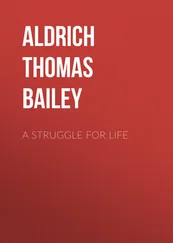Чарльз Дарвин - The Origin of Species by Means of Natural Selection Or, the Preservation of Favoured Races in the Struggle for Life
Здесь есть возможность читать онлайн «Чарльз Дарвин - The Origin of Species by Means of Natural Selection Or, the Preservation of Favoured Races in the Struggle for Life» весь текст электронной книги совершенно бесплатно (целиком полную версию без сокращений). В некоторых случаях можно слушать аудио, скачать через торрент в формате fb2 и присутствует краткое содержание. Год выпуска: 1999, Жанр: Биология, на английском языке. Описание произведения, (предисловие) а так же отзывы посетителей доступны на портале библиотеки ЛибКат.
- Название:The Origin of Species by Means of Natural Selection Or, the Preservation of Favoured Races in the Struggle for Life
- Автор:
- Жанр:
- Год:1999
- ISBN:нет данных
- Рейтинг книги:3 / 5. Голосов: 1
-
Избранное:Добавить в избранное
- Отзывы:
-
Ваша оценка:
- 60
- 1
- 2
- 3
- 4
- 5
The Origin of Species by Means of Natural Selection Or, the Preservation of Favoured Races in the Struggle for Life: краткое содержание, описание и аннотация
Предлагаем к чтению аннотацию, описание, краткое содержание или предисловие (зависит от того, что написал сам автор книги «The Origin of Species by Means of Natural Selection Or, the Preservation of Favoured Races in the Struggle for Life»). Если вы не нашли необходимую информацию о книге — напишите в комментариях, мы постараемся отыскать её.
The Origin of Species by Means of Natural Selection Or, the Preservation of Favoured Races in the Struggle for Life — читать онлайн бесплатно полную книгу (весь текст) целиком
Ниже представлен текст книги, разбитый по страницам. Система сохранения места последней прочитанной страницы, позволяет с удобством читать онлайн бесплатно книгу «The Origin of Species by Means of Natural Selection Or, the Preservation of Favoured Races in the Struggle for Life», без необходимости каждый раз заново искать на чём Вы остановились. Поставьте закладку, и сможете в любой момент перейти на страницу, на которой закончили чтение.
Интервал:
Закладка:
Natural selection cannot possibly produce any modification in a species exclusively for the good of another species; though throughout nature one species incessantly takes advantage of, and profits by the structures of others. But natural selection can and does often produce structures for the direct injury of other animals, as we see in the fang of the adder, and in the ovipositor of the ichneumon, by which its eggs are deposited in the living bodies of other insects. If it could be proved that any part of the structure of any one species had been formed for the exclusive good of another species, it would annihilate my theory, for such could not have been produced through natural selection. Although many statements may be found in works on natural history to this effect, I cannot find even one which seems to me of any weight. It is admitted that the rattlesnake has a poison-fang for its own defence and for the destruction of its prey; but some authors suppose that at the same time it is furnished with a rattle for its own injury, namely, to warn its prey. I would almost as soon believe that the cat curls the end of its tail when preparing to spring, in order to warn the doomed mouse. It is a much more probable view that the rattlesnake uses its rattle, the cobra expands its frill and the puff-adder swells while hissing so loudly and harshly, in order to alarm the many birds and beasts which are known to attack even the most venomous species. Snakes act on the same principle which makes the hen ruffle her feathers and expand her wings when a dog approaches her chickens. But I have not space here to enlarge on the many ways by which animals endeavour to frighten away their enemies.
Natural selection will never produce in a being any structure more injurious than beneficial to that being, for natural selection acts solely by and for the good of each. No organ will be formed, as Paley has remarked, for the purpose of causing pain or for doing an injury to its possessor. If a fair balance be struck between the good and evil caused by each part, each will be found on the whole advantageous. After the lapse of time, under changing conditions of life, if any part comes to be injurious, it will be modified; or if it be not so, the being will become extinct, as myriads have become extinct.
Natural selection tends only to make each organic being as perfect as, or slightly more perfect than the other inhabitants of the same country with which it comes into competition. And we see that this is the standard of perfection attained under nature. The endemic productions of New Zealand, for instance, are perfect, one compared with another; but they are now rapidly yielding before the advancing legions of plants and animals introduced from Europe. Natural selection will not produce absolute perfection, nor do we always meet, as far as we can judge, with this high standard under nature. The correction for the aberration of light is said by Muller not to be perfect even in that most perfect organ, the human eye. Helmholtz, whose judgment no one will dispute, after describing in the strongest terms the wonderful powers of the human eye, adds these remarkable words: "That which we have discovered in the way of inexactness and imperfection in the optical machine and in the image on the retina, is as nothing in comparison with the incongruities which we have just come across in the domain of the sensations. One might say that nature has taken delight in accumulating contradictions in order to remove all foundation from the theory of a pre-existing harmony between the external and internal worlds." If our reason leads us to admire with enthusiasm a multitude of inimitable contrivances in nature, this same reason tells us, though we may easily err on both sides, that some other contrivances are less perfect. Can we consider the sting of the bee as perfect, which, when used against many kinds of enemies, cannot be withdrawn, owing to the backward serratures, and thus inevitably causes the death of the insect by tearing out its viscera?
If we look at the sting of the bee, as having existed in a remote progenitor, as a boring and serrated instrument, like that in so many members of the same great order, and that it has since been modified but not perfected for its present purpose, with the poison originally adapted for some other object, such as to produce galls, since intensified, we can perhaps understand how it is that the use of the sting should so often cause the insect's own death: for if on the whole the power of stinging be useful to the social community, it will fulfil all the requirements of natural selection, though it may cause the death of some few members. If we admire the truly wonderful power of scent by which the males of many insects find their females, can we admire the production for this single purpose of thousands of drones, which are utterly useless to the community for any other purpose, and which are ultimately slaughtered by their industrious and sterile sisters? It may be difficult, but we ought to admire the savage instinctive hatred of the queen-bee, which urges her to destroy the young queens, her daughters, as soon as they are born, or to perish herself in the combat; for undoubtedly this is for the good of the community; and maternal love or maternal hatred, though the latter fortunately is most rare, is all the same to the inexorable principles of natural selection. If we admire the several ingenious contrivances by which orchids and many other plants are fertilised through insect agency, can we consider as equally perfect the elaboration of dense clouds of pollen by our fir-trees, so that a few granules may be wafted by chance on to the ovules?
SUMMARY: THE LAW OF UNITY OF TYPE AND OF THE CONDITIONS
OF EXISTENCE EMBRACED BY THE THEORY OF NATURAL SELECTION.
We have in this chapter discussed some of the difficulties and objections which may be urged against the theory. Many of them are serious; but I think that in the discussion light has been thrown on several facts, which on the belief of independent acts of creation are utterly obscure. We have seen that species at any one period are not indefinitely variable, and are not linked together by a multitude of intermediate gradations, partly because the process of natural selection is always very slow, and at any one time acts only on a few forms; and partly because the very process of natural selection implies the continual supplanting and extinction of preceding and intermediate gradations. Closely allied species, now living on a continuous area, must often have been formed when the area was not continuous, and when the conditions of life did not insensibly graduate away from one part to another. When two varieties are formed in two districts of a continuous area, an intermediate variety will often be formed, fitted for an intermediate zone; but from reasons assigned, the intermediate variety will usually exist in lesser numbers than the two forms which it connects; consequently the two latter, during the course of further modification, from existing in greater numbers, will have a great advantage over the less numerous intermediate variety, and will thus generally succeed in supplanting and exterminating it.
We have seen in this chapter how cautious we should be in concluding that the most different habits of life could not graduate into each other; that a bat, for instance, could not have been formed by natural selection from an animal which at first only glided through the air.
We have seen that a species under new conditions of life may change its habits, or it may have diversified habits, with some very unlike those of its nearest congeners. Hence we can understand, bearing in mind that each organic being is trying to live wherever it can live, how it has arisen that there are upland geese with webbed feet, ground woodpeckers, diving thrushes, and petrels with the habits of auks.
Читать дальшеИнтервал:
Закладка:
Похожие книги на «The Origin of Species by Means of Natural Selection Or, the Preservation of Favoured Races in the Struggle for Life»
Представляем Вашему вниманию похожие книги на «The Origin of Species by Means of Natural Selection Or, the Preservation of Favoured Races in the Struggle for Life» списком для выбора. Мы отобрали схожую по названию и смыслу литературу в надежде предоставить читателям больше вариантов отыскать новые, интересные, ещё непрочитанные произведения.
Обсуждение, отзывы о книге «The Origin of Species by Means of Natural Selection Or, the Preservation of Favoured Races in the Struggle for Life» и просто собственные мнения читателей. Оставьте ваши комментарии, напишите, что Вы думаете о произведении, его смысле или главных героях. Укажите что конкретно понравилось, а что нет, и почему Вы так считаете.












